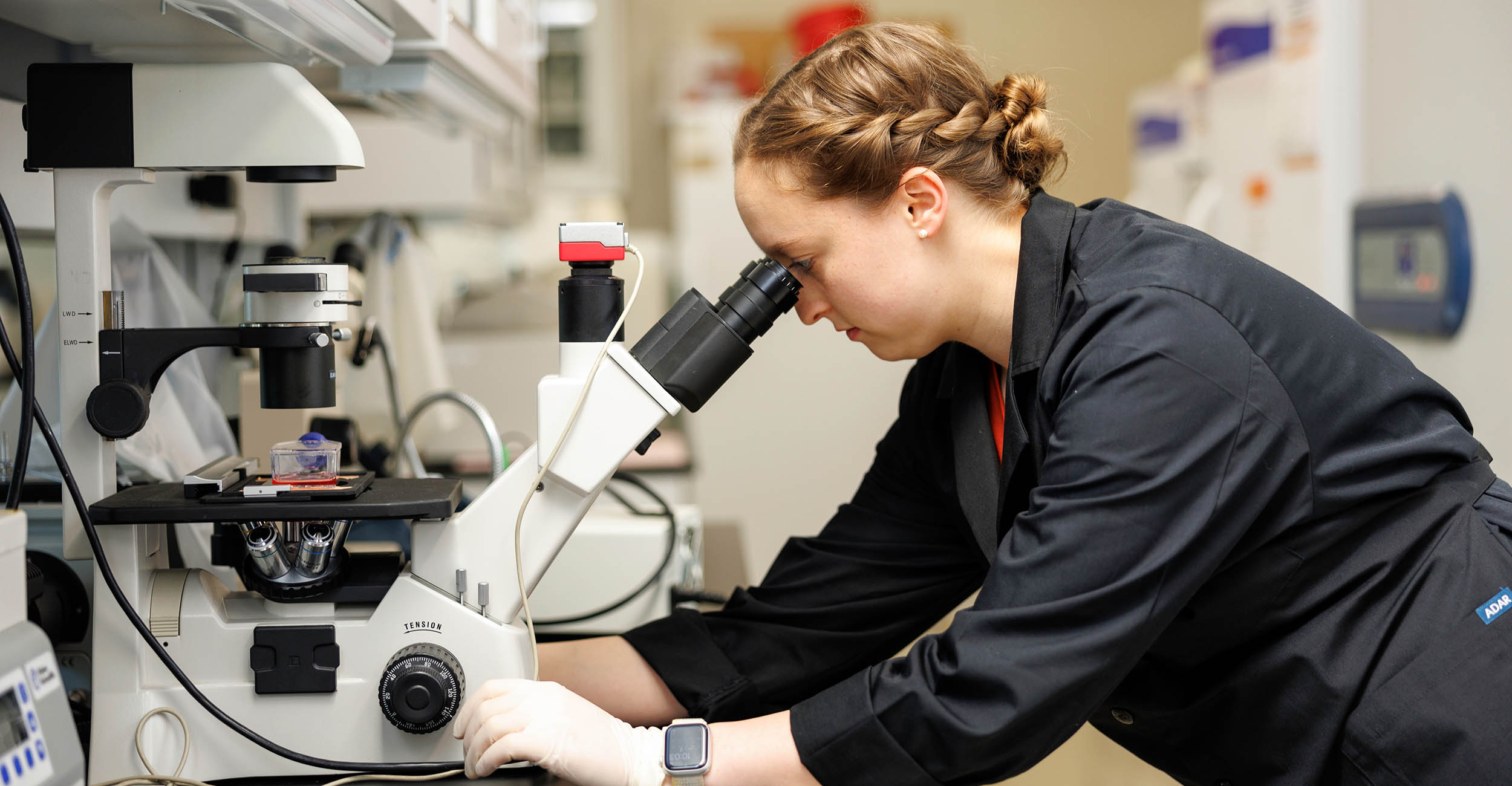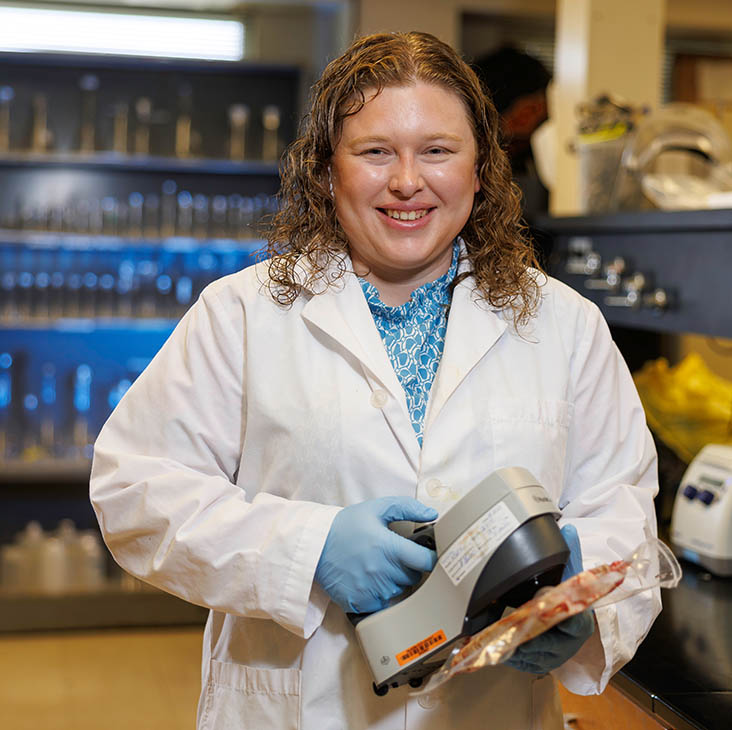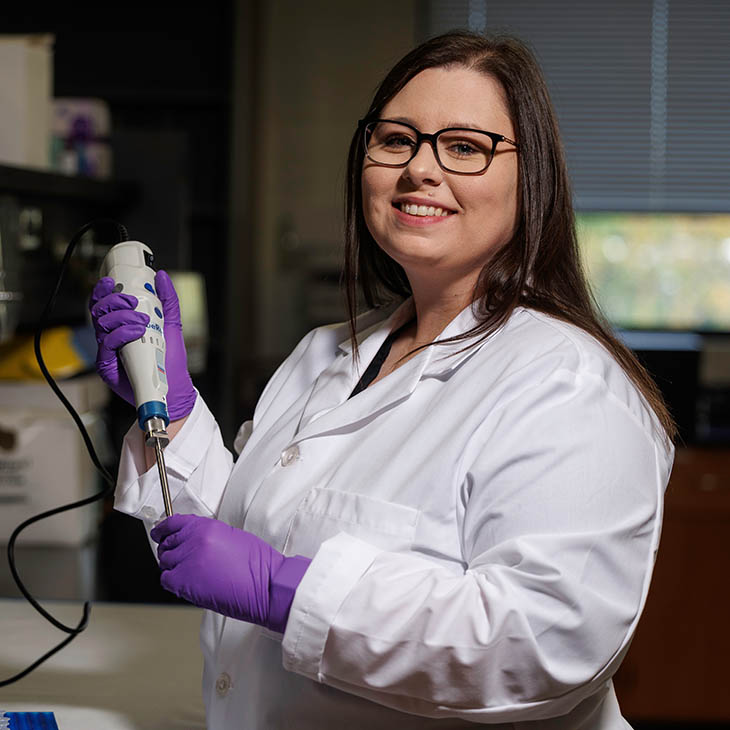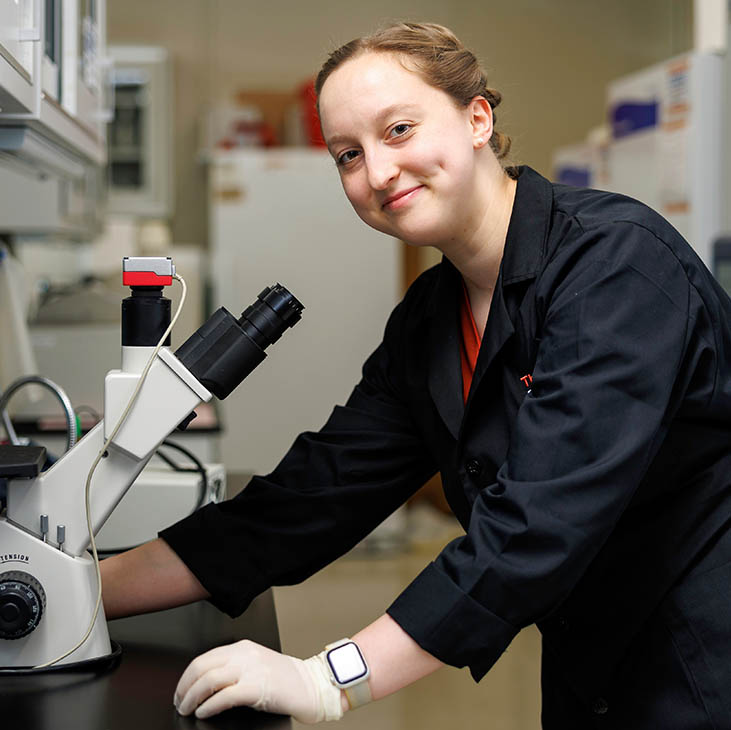
OSU expanding molecular research through national fellowship
Wednesday, September 11, 2024
Media Contact: Alisa Boswell-Gore | Office of Communications & Marketing, OSU Agriculture | 405-744-7115 | alisa.gore@okstate.edu
There is a reported shortage of professionals in natural resource and food conservation, and doctoral degree programs in specialty areas of genetic research are scarce.
The USDA-National Institute of Food and Agriculture is focused on remedying this problem through a fellowship program that promotes omics, a branch of science that includes the study of molecules and their structures to better understand the biological organisms of plants and animals. The National Needs Fellowship supports integrated omics, which includes areas like genomics, proteomics and metabolomics.
“United States agriculture and food systems need to transform in a sustainable way to meet future demands with limited land and water use,” said Ranjith Ramanathan, professor and the Leo and Kathy Noltensmeyer Endowed Research Chair in the Oklahoma State University Department of Animal and Food Sciences. “While these areas of study have been incorporated into fundamental research at the molecular level, limited doctoral training programs have combined omics technology with multiple disciplines.”
OSU’s animal and food sciences and biochemistry and molecular biology departments support the National Needs Fellowship, and the Ferguson College of Agriculture now offers an academic course to integrate omics technologies. The fellowship emphasizes professional development, teaching experience, mentoring opportunities and STEM outreach activities.
Doctoral students Keayla Harr and Mindy King are wrapping up the fellowship as they prepare to graduate in December. 
“My research has focused on dark-cutting beef, specifically looking at varying shades of dark-cutting beef and how that impacts some of the biochemical color characteristics,” said Harr, a student working under Ramanathan and Morgan Pfeiffer, assistant professor in animal and food sciences.
Dark-cutting beef, meat that does not display a bright red color when cut and exposed to air, causes $180 million in economic losses annually in the United States.
“The purpose of this is to investigate the underlying causes of dark-cutting beef and to use a holistic approach with how we evaluate the varying shades of discoloration to give us a strong idea of what’s causing dark-cutting beef,” Harr added.
As part of the fellowship, Harr presented her research at a conference in Brazil in August. She said the program has allowed her to dive into research she never thought she would do during her animal science studies.
“That has been a great aspect of this program,” she said. “My family’s livelihood is in production agriculture and raising cattle, so I want to go back and be involved in my family’s operation but also have an academic or industry job that allows me to keep myself rooted in the beef industry. I want to make sure beef remains a valued part of consumer plates.”
 King’s focus throughout her academic career has been on ruminant nutrition. Under the supervision of Andrew Foote, associate professor of animal and food sciences, King studies how to improve the efficient use of nutrients in cattle and the environmental and economic sustainability of the beef industry.
King’s focus throughout her academic career has been on ruminant nutrition. Under the supervision of Andrew Foote, associate professor of animal and food sciences, King studies how to improve the efficient use of nutrients in cattle and the environmental and economic sustainability of the beef industry.
“I enjoyed the fellowship as a whole,” King said. “To learn cutting-edge research techniques, such as phosphoproteomics, is a novel area of application in understanding nutrient utilization in cattle. This research has potential for a lot of application.”
King has a job lined up as an assistant professor in ruminant nutrition at Kansas State University upon graduation. She will begin her new position in January.
Makenna McKendrick began the fellowship last year and anticipates graduating in 2028. Under the supervision of Darren Hagen, associate professor of animal and food sciences, McKendrick is studying micropeptides in cells taken from sheep, cattle and goats. Micropeptides are small proteins whose functions are not yet fully understood and have not been studied much in livestock species.
“I am working to identify the parts of the genome that have the potential to produce these micropeptides and then verifying them by  isolating and analyzing the proteins found in the cultured cells,” McKendrick said. “We hope to identify similar micropeptides across sheep, cattle and goats, which can lead to further studies in more animal species.”
isolating and analyzing the proteins found in the cultured cells,” McKendrick said. “We hope to identify similar micropeptides across sheep, cattle and goats, which can lead to further studies in more animal species.”
McKendrick said she feels very fortunate to join the fellowship early in her doctoral journey.
“I know what we do in our lab, but learning about Mindy and Keayla’s work, visiting the different labs and seeing the same technologies applied in completely different areas of science has been eye-opening,” she said. “It’s been quite the learning curve. I’m excited for what’s to come.”
Ramanathan, the principal investigator of the grant, said he hopes to continue the program while adding other areas of research. Hagen, Steven Hartson and Gretchen Mafi are co-principal investigators on the five-year grant.
“It’s been an amazing journey,” Ramanathan said of the program. “Keayla will do amazing things, and Mindy already has a faculty position. We couldn’t ask for more than that. We are so proud of each of them.”
